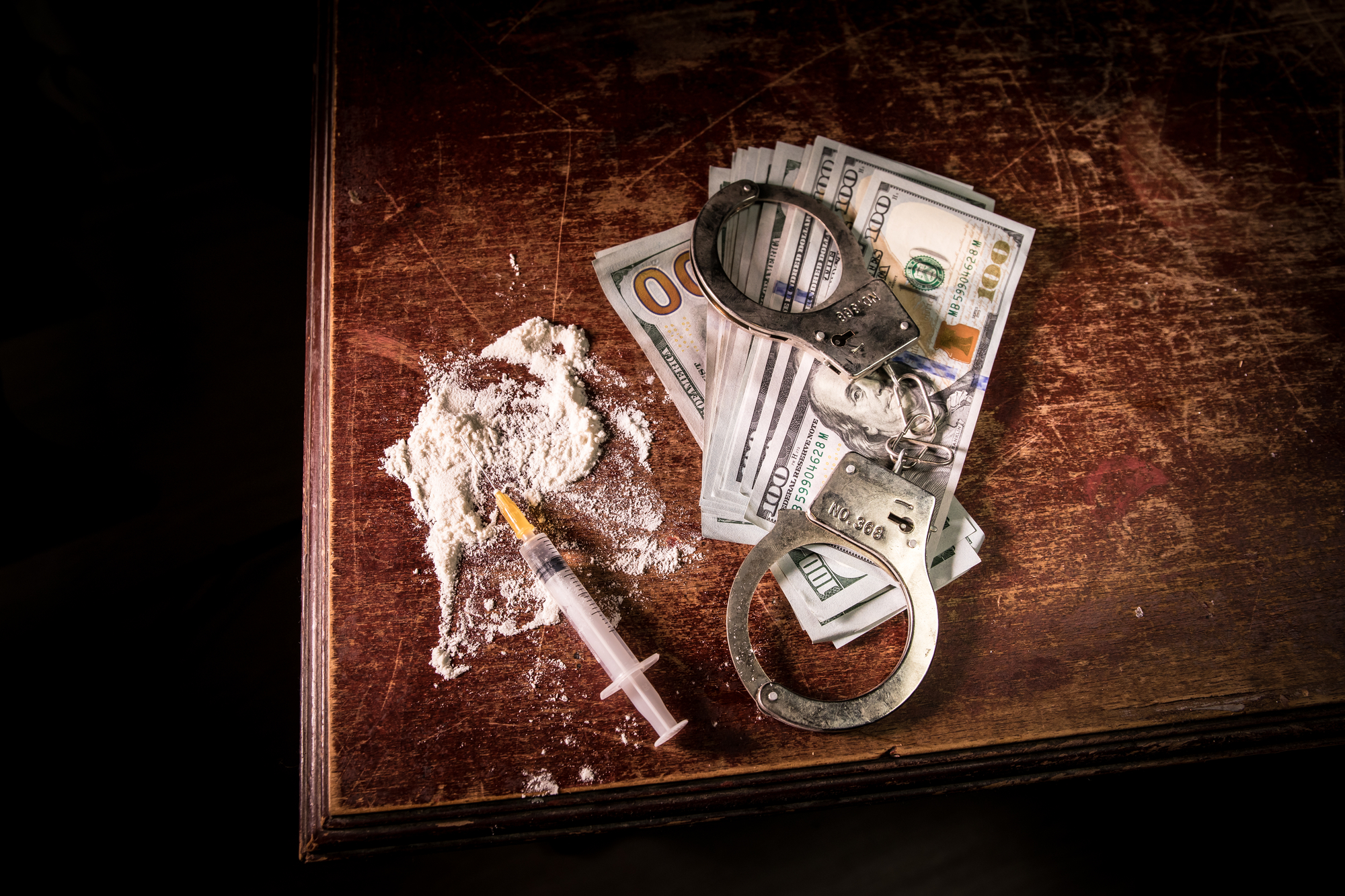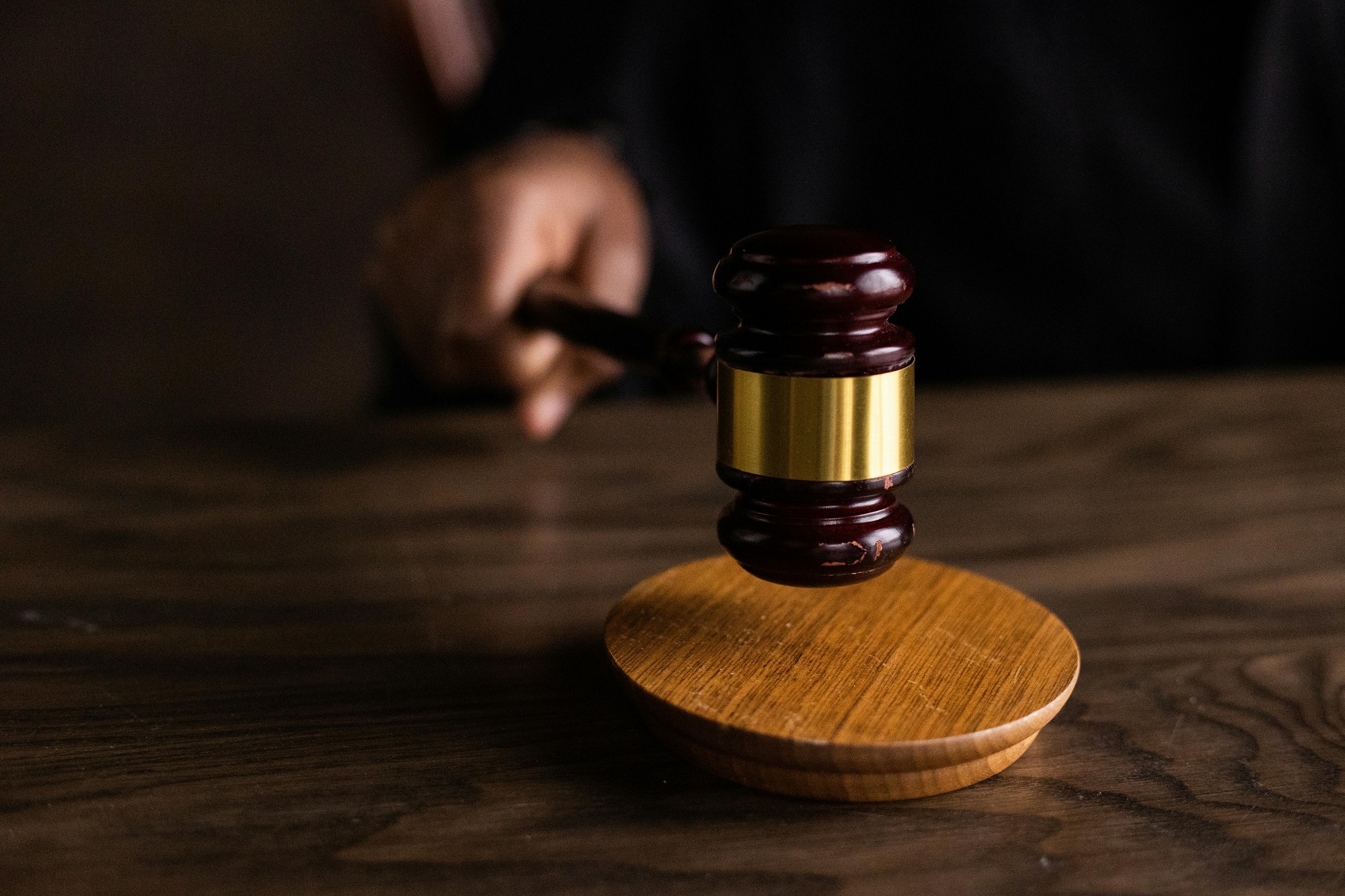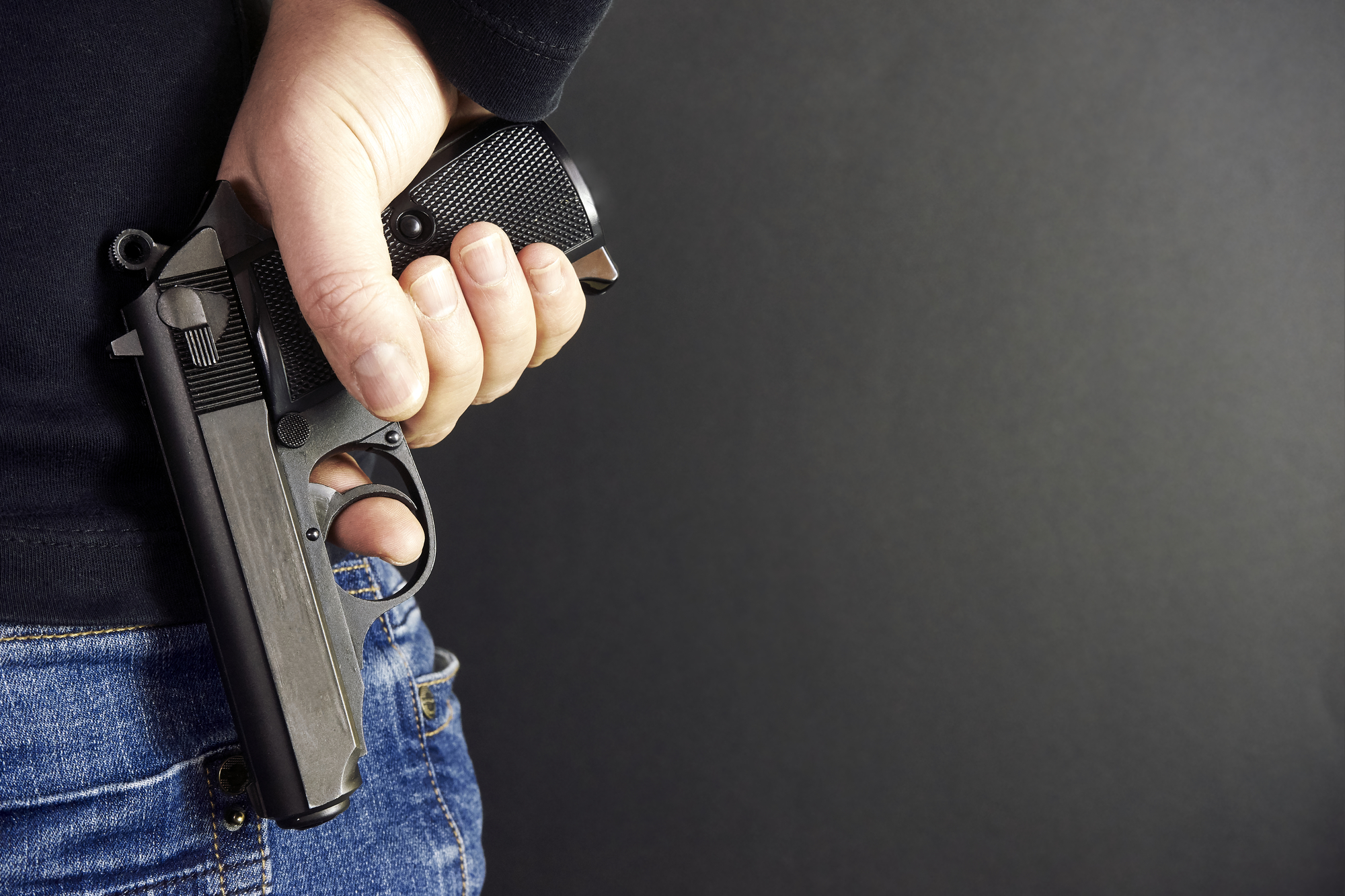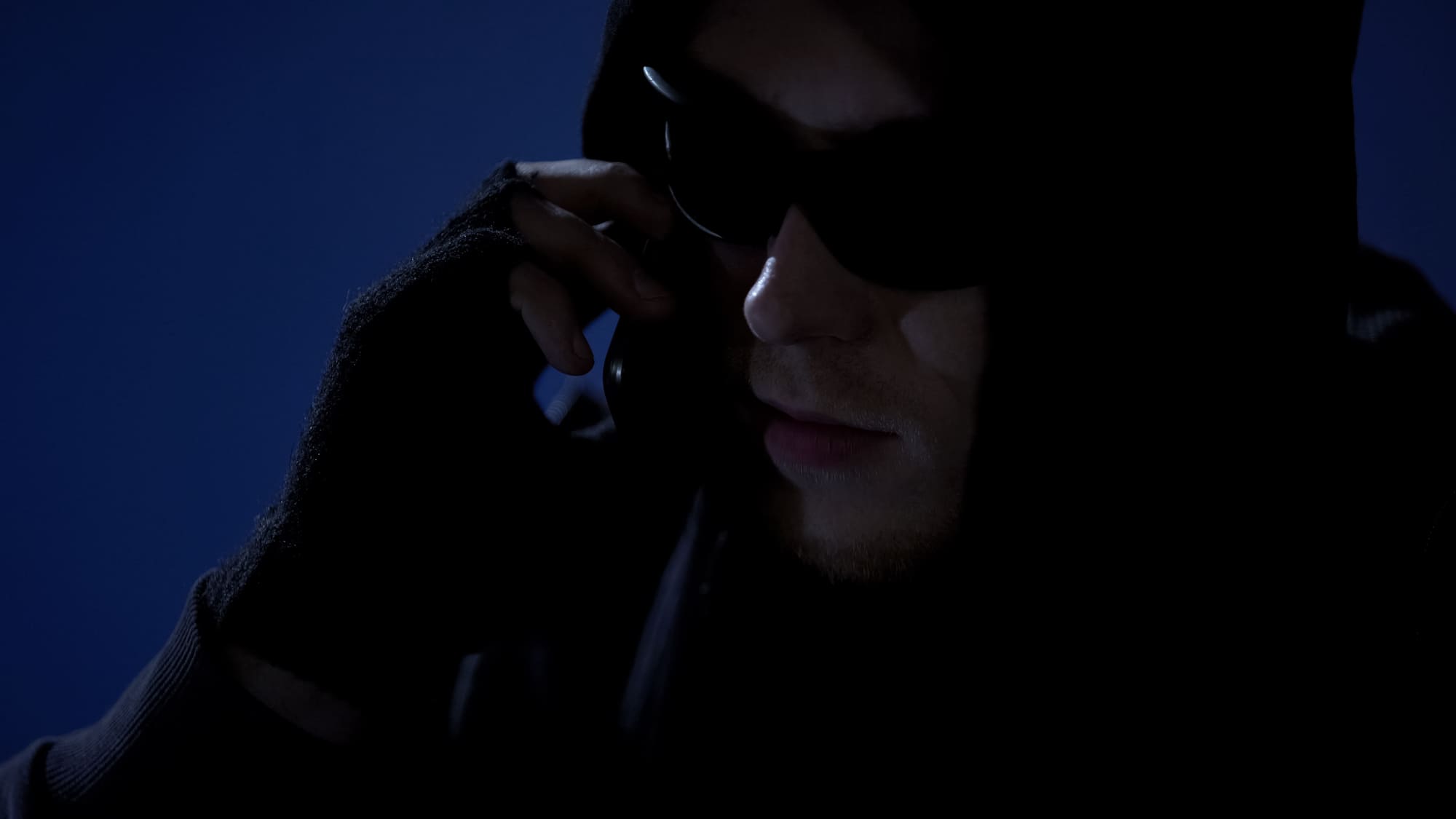If you or a loved one find yourselves in a difficult situation, we understand the urgency and stress that comes with it. At Angels Bail Bonds, we specialize in providing the support and assistance needed to secure bail for felony possession of a controlled substance for sale charges.
Learn the basics about the bail process for a felony possession of a controlled substance for sale charge, and then contact Angels Bail Bonds today. Let us be your trusted partner in navigating the bail process for felony possession of a controlled substance for sale charges. We are here to help you regain your freedom and prepare for your legal journey.
What Is Bail?
Bail in California refers to the amount of money or property that a defendant or their surety (a person responsible for the defendant’s appearance in court) must deposit with the court to secure the defendant’s release from custody while awaiting trial.
The purpose of bail is to ensure that the defendant appears in court for all scheduled hearings and does not flee before the trial. A bail schedule or table determines bail amounts, but a judge can deviate from the schedule based on various factors, including the severity of the offense, the defendant’s criminal history, and if the defendant is a flight risk. If the defendant fails to appear in court, the bail is forfeited, and a warrant may be issued for their arrest.
What Are Bail Bonds?
When you find yourself in a situation where you can’t afford to pay for your bail, bail bonds might be the solution for you. A bail bondsman, who a bail bond company employs, will charge you a fee in exchange for providing the payment. Bail bond companies in California charge only 10% of the total bail amount to post-bond for a defendant. So, if the bail amount is $20,000, the bondsman will charge $2,000 instead of the full amount. While this may still seem like a lot of money, it’s much more affordable than paying the entire bail amount, especially on extremely high bail amounts for some serious felonies.
Those rates can be as high as 20% for some immigration and federal charges because these rates are set by law, and all bail companies must charge the same amount. Despite the costs, using a bail bondsman can be a lifesaver for those who cannot afford to be released from custody on bail.
What Happens At A Bail Hearing?
The amount of bail is normally set at the person’s initial court appearance, often known as the arraignment stage or pre-trial detention. A judge can either release a person on their own recognizance (OR) with a promise to appear in court at a later date or deny their OR and impose bail.
If the charges are infraction offenses or even some misdemeanor offenses—such as a DUI with no accident injuries or significant property damage— the person will usually be released without bail after being arrested. More serious felony charges, like assault with a deadly weapon or even murder, will not have OR as an option and will only be released from custody on bail.
You must pay the bail amount or post a bail bond on the bail schedule (Los Angeles and Orange County). An arresting officer might ask for a higher bail amount than what the bail schedule suggests.
What Factors Influence a Defendant’s Bail Amount?
The bail bond process starts when a defendant is in front of a judge to determine bail. Then several factors are put into play, including the severity of the crime, criminal record, whether the defendant is a flight risk, community ties, financial resources, their potential danger to public safety, and even mental health are considered when determining bail amount.
The bail schedule further gives guidance for all criminal charges, with the judge having some leeway in the specific amounts, as mentioned. And even if they’re allowed out on bail, the defendant might have to be placed under house arrest, be prohibited from owning any deadly weapons, or placed under electronic monitoring.
Have You Been Charged With Criminal Felony Possession of a Controlled Substance for Sale HS 11351?
If you’ve been charged with a criminal offense like a felony possession of a controlled substance for sale, you or a loved one must contact the experts at Angels Bail Bonds immediately. Our team of bail bondsmen and criminal defense lawyers provide assistance during pre-trial detention at no extra cost, including nationwide.
What is Felony Possession of a Controlled Substance for Sale?
Possession of a controlled substance for sale, as defined by HS 11351, refers to the illegal act of having a controlled substance in one’s possession with the intent to sell or distribute it. Under this statute, a controlled substance refers to any drug or substance listed in the state’s controlled substances schedules, such as cocaine, heroin, methamphetamine, and certain prescription medications.
The exact wording is:
Except as otherwise provided in this division, every person who possesses for sale or purchases for purposes of sale (1) any controlled substance specified in subdivision (b), (c), or (e) of Section 11054, specified in paragraph (14), (15), or (20) of subdivision (d) of Section 11054, or specified in subdivision (b) or (c) of Section 11055, or specified in subdivision (h) of Section 11056, or (2) any controlled substance classified in Schedule III, IV, or V which is a narcotic drug, shall be punished by imprisonment pursuant to subdivision (h) of Section 1170 of the Penal Code for two, three, or four years.
To prove a charge of possession of drugs for sale, the prosecution must establish two main elements: constructive drug possession and having that substance with intent to sell it.
Constructive possession means it is physically on the person, such as in their hand or pocket, or within the person’s control or dominion, such as in their vehicle or residence.
The prosecution must also demonstrate that the accused had the specific intent to sell or distribute it. This intent can be inferred from various factors, including the quantity of the substance, the presence of packaging materials, large amounts of cash, or other type of evidence indicating involvement in drug trafficking.
If convicted, the penalties for possession of a controlled substance for sale under HS 11351 can be severe. It is considered a felony offense, punishable by imprisonment in state prison for a period ranging from two to four years and a fine of up to $20,000.
The severity of the crime and additional charges depends on the quantity of the illegal drug (and whether it was a usable amount or not) or controlled substance, the type of controlled substance (whether it was a prescription drug or something more serious like cocaine), what you intend to do with the drug, and other circumstances, like whether or not you had a deadly weapon on you.
Controlled substances are classified into five different schedules according to federal and California law. Some prescription drugs will only give you problems if you don’t have a proper prescription, but some substances are illegal drugs in any circumstance.
These are the classification of controlled substances under federal law, from highest risk to lowest:
- Schedule I: This category includes drugs that have a high potential for abuse and have no accepted medical use in the United States. Examples of Schedule I substances include heroin, LSD, ecstasy, and marijuana, although this varies by state, and California has legalized both medical and recreational use of the drug. These illegal drugs are considered to be the most dangerous and strictly regulated.
- Schedule II: Drugs in this category have a high potential for abuse but have some accepted medical uses with severe restrictions. Examples include cocaine and opioids such as fentanyl, oxycodone, and methadone. Schedule II substances may lead to severe physical and psychological dependence if misused.
- Schedule III: The drugs in this category have a lower potential for abuse compared to Schedule I and II drugs and have accepted medical uses. Examples include certain barbiturates, anabolic steroids, and some stimulants like ketamine. Although they have a lower risk of dependence, abuse of Schedule III substances can still lead to moderate to low physical or psychological dependence.
- Schedule IV: Drugs in this category have a lower potential for abuse than Schedule III ones and have accepted medical uses. Examples include benzodiazepines like Xanax and Valium, as well as some sleep aids and muscle relaxants. These drugs have a limited risk of dependence compared to higher schedules.
- Schedule V: This category includes drugs with the lowest potential for abuse compared to the other schedules and have accepted medical uses. Examples include over-the-counter medications that contain limited amounts of codeine, such as cough syrups. Schedule V substances have the lowest risk of dependence but are still regulated due to their potential for misuse.
Is simple possession of marijuana legal in California?
Yes, California has legalized the recreational use of marijuana/cannabis. Adults over 21 years old are allowed to possess up to 28.5 grams of marijuana. The state has also legalized the use of cannabis for medical purposes. If you have a valid prescription, there is no limit to the amount you can possess.
However, if you are found in possession of marijuana with the intent to sell, you may be charged with a misdemeanor. The fines for this offense can range from $100 to $500. In some cases, instead of jail time, you may be given the option to undergo drug counseling and community service.
There are also three situations where possession of marijuana can result in a felony charge for unlawful possession:
- You have two prior misdemeanor drug crime convictions.
- You have previous convictions for sex crimes, violent offenses, or other serious felonies.
- You were attempting to sell marijuana to a minor.

Types of Felony Possession of a Controlled Substance for Sale Charges in California
All possession of a controlled substance for sale are felony convictions, but simple possession is a wobbler and might depend on the circumstances and even the type of drug.
When Simple Possession Can be a Felony
The passing of Proposition 47 in 2014 in California changed the consequences for simple possession of a controlled substance. Now, in most cases, it is considered a misdemeanor crime. However, it’s important to note that even a misdemeanor charge can have serious long-term implications. Under Prop 47, you could potentially face up to a few months in jail or a year in prison, depending on the amount and type of controlled substance. In certain situations, you may even be charged with a felony.
It is crucial to understand that possessing a controlled substance without a valid prescription and in the prescribed quantity is strictly prohibited. While this defense strategy may work for drugs like Vicodin or cannabis, it won’t apply to substances like cocaine and ecstasy.
Felony possession of a controlled substance is determined based on the type and quantity of the substance involved. If you have a prior conviction or if illegal possession was intent to sell, you may face felony charges.
Most felony convictions for unlawful possession of a controlled substance occur when the substance is a narcotic drug categorized as Schedule I or Schedule II. This includes drugs like cocaine, heroin, ecstasy, and even Vicodin (hydrocodone) without a prescription.
While simple possession of these drugs doesn’t always result in an automatic felony charge, they can lead to felony drug charges when combined with certain factors. These factors include intending to sell a controlled substance to a minor, having two previous drug misdemeanor convictions, or having a previous record of drug, sex crime, or felony convictions. It is crucial to be aware of these potential consequences.
Felony Opening, Operating or Maintaining a Drug House (HS 11366)
It is a criminal offense to unlawfully open or maintain a place for the purpose of manufacturing, distributing, storing, or using controlled substances. The offense can include activities such as selling drugs, allowing others to use drugs on the premises, or providing a location for drug-related activities. Violation of HS 11366 is considered a felony under California law and is punishable by time in jail, fines, probation, or a combination of these penalties.
Felony Possession of Drug Paraphernalia (HS 11364)
The crime of possession of drug paraphernalia is defined under Health and Safety Code Section 11364. It involves possessing any device, instrument, or paraphernalia that is used, intended for use, or designed for use in unlawfully injecting or smoking a controlled substance.
Possessing drug paraphernalia alone is a misdemeanor offense in California. The penalties for this offense may include a fine of up to $1,000 and/or imprisonment in a county jail for up to six months. It is important to note that possession of drug paraphernalia in conjunction with additional charges involving narcotics for sale may lead to additional penalties.

Penalties in Felony Possession for Sale of a Controlled Substance
The criminal penalties for possession with intent to sell a controlled substance vary depending on the specific substance involved and the amount in possession, but is always a felony conviction.
The penalties are outlined in the California Health and Safety Code, specifically in sections 11351, 11351.5, 11352, and 11379. These penalties can include:
- Imprisonment: The potential jail time for possession of a controlled substance with intent to sell can range from two to four years in county jail for most substances. However, for certain substances like cocaine, heroin, and methamphetamine, the time in jail can range from three to five years.
- Enhanced Sentencing: If the amount of the controlled substance in possession exceeds certain thresholds, the penalties may be enhanced. For example, possessing certain amounts of cocaine or methamphetamine with intent to sell can lead to a potential imprisonment of up to nine years, worse than cannabis or other synthetic drugs. Selling near drug treatment facilities, schools, or other spaces are also penalty enhancements for persons involved in a possession for sale case.
- Fines: In addition to imprisonment, fines may also be imposed. The fines can vary depending on the specific substance and the amount involved, but can range from several thousand dollars to a maximum of $20,000.
- Parole or Probation: In some cases, individuals convicted of possession with intent to sell may also be subject to parole or probation supervision after up to a year county jail.
It’s important to note that there can be more severe additional penalties for individuals who have prior drug crime convictions, are involved in large-scale drug trafficking, or possess weapons during the commission of drug offenses.
Prosecutors can also impose charges for every intended sale of drugs, not just a single possession for sale case. If you have multiple synthetic stimulants or prohibited substances in your possession for sale, you can be charged, for example, with both possession of methamphetamines and possession of cocaine base at the same time. There may also be other factors that will impact specific cases.
Penalties for Simple Possession of Drugs
In California, the criminal penalties for possession of a controlled substance can vary depending on the specific drug involved and the amount in possession. Here are the general penalties:
- Misdemeanor Possession: Possession of most controlled substances, such as marijuana, cocaine, methamphetamine, and ecstasy, for personal use is typically charged as a misdemeanor in California. The penalties may include up to one year in county jail, a fine of up to $1,000, or both.
- Felony Possession: Possession of certain controlled substances in larger quantities or with the intent to sell can be charged as a felony punishable by more than just a year in county jail. Examples include synthetic drugs like heroin, LSD, and some prescription drugs. The penalties may include imprisonment in state prison for up to three years, fines of up to $20,000, or both.
It’s important to note that these penalties can be enhanced if aggravating factors are present, such as possessing drugs near a school or involving minors in the offense.
California offers alternative sentencing programs, such as drug diversion programs or drug treatment programs, which can provide an opportunity for rehabilitation instead of incarceration, although not all drug crimes qualify for these alternatives. The specific penalties can also be influenced by the individual’s criminal record.
Average Bail for Felony Possession of Controlled Substances for Sale
Felony Possession of a Controlled Substance for Sale in the California Health and Safety Code, Section 11351, and initial bail is set on the bail schedule at $20,000 to $50,000.
You Need An Experienced Bail Bond Agent That Specializes In Possession Of Controlled Substances For Sale Defense
The bail bond process for a felony possession of narcotics for sale charge is serious without expert help at your side, as the standard bail for a felony possession of a controlled substance for sale is $20,000 to $50,000. Nonetheless, a bail bond company and a criminal defense attorney can aid you during this difficult time and help you and your loved one obtain that bail money.
Legal Defenses Against Charges of Felony Possession for Sale of a Controlled Substance
As a first line of attack against the prosecution’s case, they may argue a case of an illegal search, which challenges the legality of the search and seizure that led to the discovery of the controlled substance. If the search was conducted by law enforcement without a valid warrant or probable cause, then it was an illegal search and the so-called evidence of possession may be deemed inadmissible, leading to a potential dismissal of the charges.
The criminal defense attorney may also argue against the fact there is even a drug possession for sale case at all, and that their client did not have possession of substance with intent to sell. Intent to sell is a crucial element in proving this offense, and if the attorney can demonstrate that the defendant possessed the substance solely for personal use or other non-distribution purposes, it may weaken the prosecution’s case. One key piece of evidence in that case would be to verify if you were under the influence of drugs when arrested or had a history of an addiction to drugs, pointing to personal use.
Lastly, the defense may raise doubts about the accuracy or reliability of the evidence in possession cases. They may question the chain of custody of the controlled substance, challenge the testing procedures, or present alternative explanations for the presence of the substance that do not involve intent to sell. Intent is hard for the prosecution to prove because, absent a confession or some record (text, video, audio,) the crime of possession with intent to sell can only be proved with circumstantial evidence.
By casting doubt on the evidence, the defense can create reasonable doubt in the minds of the jurors, potentially leading to an acquittal or reduction of charges.
Free Consultation & Case Review
Do you know someone who has been arrested for felony possession of a controlled substance for sale? Look no further because we are here to help. At Angel Bail Bonds, we work with experienced bail bondsmen and criminal defense attorneys to be your best option, even in cases where you need bail for possession of a controlled substance for sale. We offer flexible payment plans and affordable rates to make the bail process more manageable for you and your loved ones. If you have any questions about how bail laws and the bail bond process works in California or need assistance helping a loved one, don’t hesitate to call us today.




